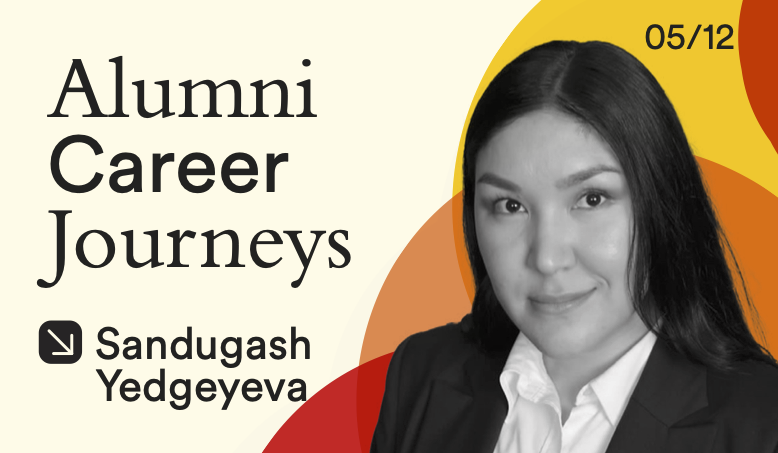To describe the year that Sandugash Yedgeyeva undertook her MBA at Hult as anything other than life-changing would be an enormous understatement.
In that 12-month timeframe, she moved from Kazakhstan to Boston, leaving behind a well-established career in her home country’s lucrative oil and gas industry. She fully immersed herself in her studies, tackling new disciplines and reimagining her career trajectory. She met and got engaged to her future husband. She connected with life-long international friends and mentors. And she graduated ready to pursue a new career at one of the top multinational banks in the US.
To top off a transformational year, she was eight months pregnant with her son when she walked across the stage to collect her Hult diploma. “I always joke that he has an MBA too, because he was right there with me at graduation!” she says with a big smile.
If Hult is the business school for those made to do, Sandugash is the embodiment of that ethos. Along with being a new mother, within five years of graduating, she’d worked her way up to VP-level at Bank of America, realizing that untapped potential she’d started to uncover as an MBA candidate.
Now a US citizen living and working in Rhode Island, she still considers herself a citizen of the world. We were lucky enough to talk to the class of 2018 alum to find out more about her career journey and the mindset that has been integral to her success.
Hult: Tell us a bit about yourself and your background.
Sandugash: I’m from Kazakhstan, which gained independence from the Soviet Union in 1991. This is one of the reasons I grew up bilingual, speaking my native Kazakh as well as Russian. English is the other main language taught.
I went to university at 18 and specialized in translation. I love languages and English came quickly to me. My mindset from a young age has always been: How can I maximize my time and use it wisely? I’d finished all my reading for my course upfront, so I talked to my professor about options for working part-time and getting industry experience before graduating.
My professor agreed that the best way for me to keep learning was to go out and put my language skills to use. The big resource in Kazakhstan is oil and gas—that’s what drives the economy and that’s where opportunities are. So, I landed a job in oil and gas as a technical translator.
After graduation, I furthered my education by pursuing a second degree in finance. I worked my way up over 12 years, from technical translation and sales coordinator to contracts and procurements at North Caspian Operating Company, a joint venture of KazMunaiGaz, Shell, ExxonMobil, Eni, Total, CNPC, and Inpex. I worked with subject matter experts from all over the world, with diverse backgrounds and expertise.
Having a rotational work schedule meant that I had a great opportunity to travel the world during my off shift. I love to travel, and experiencing different cultures in countries like Australia, the UK, Ireland, the US, France, Italy, the UAE, Turkey, and the Maldives gave me unforgettable experiences and shaped my worldview.
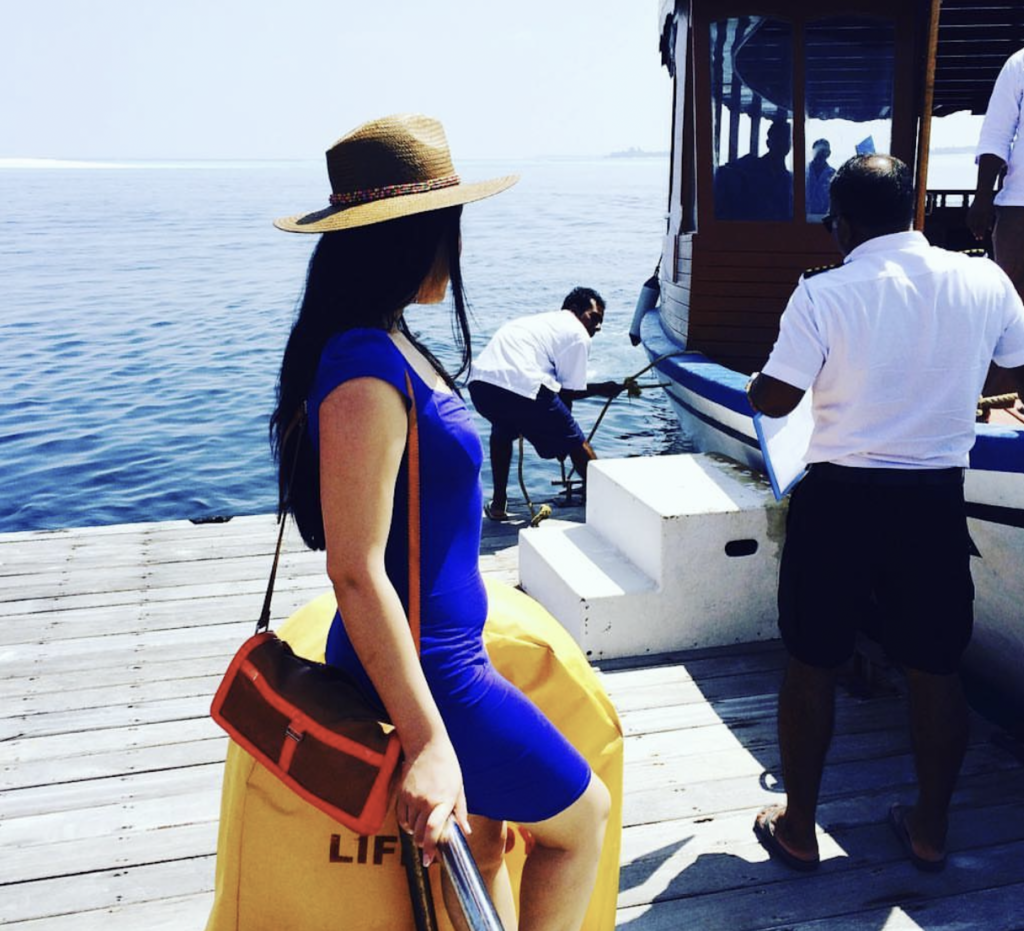

H: What made you consider stepping away from all of that?
S: I was happy, but I was feeling too comfortable. Deep down in my heart, I felt I had not realized my full potential yet. I had outgrown myself and my environment, and I wanted to continue to pursue education further.
As one of my favorite mentors Dani Cassidy says, “Comfort and growth do not coexist.” This became my motto for life. And now I look back and understand the power of these words. I knew I had so much more untapped potential. And I’m forever hungry for knowledge and growth!
I’m forever hungry for knowledge and growth!
H: Why did you choose an MBA from Hult as your next move?
S: One of my best friends, Elizabeth, was on the Executive MBA course and mentioned it to me. I had thought of taking on an MBA journey but was waiting for the right moment. Once I was ready, nothing could stop me.
I got in touch with Francesco Farne from Hult who provided all the information to start the application process. Because this was in July and the program started in September, I needed to get my application in fast. I dropped everything and did it so quickly!
I was accepted and Hult approved me for a partial scholarship as well. But I had an established life, close to my dear family and friends, my home, and my job in Kazakhstan. Within a month, I had to rearrange everything and be on an airplane to the US with one suitcase!
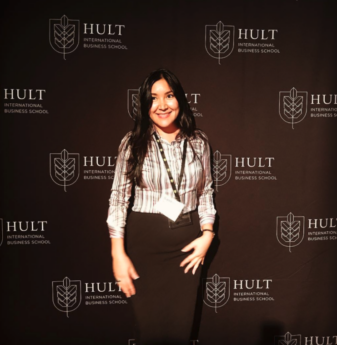

H: What was your first impression of Hult?
S: My first impression was—WOW!—the campus is beautiful and the library is equipped with tons of books. It had everything students needed.
The Dean was amazing! She was very welcoming and I quickly felt like this was going to be a great experience. The faculty and staff were so warm too. And with the international diversity on campus came a sense of inclusivity and belonging.
We had a fantastic orientation. One of the most memorable parts was going around Boston on a yellow American school bus like kids—I’ll never forget that! We also had a great party on a boat in the harbor. It was an amazing introduction to life at Hult.
With the international diversity on campus came a sense of inclusivity and belonging.
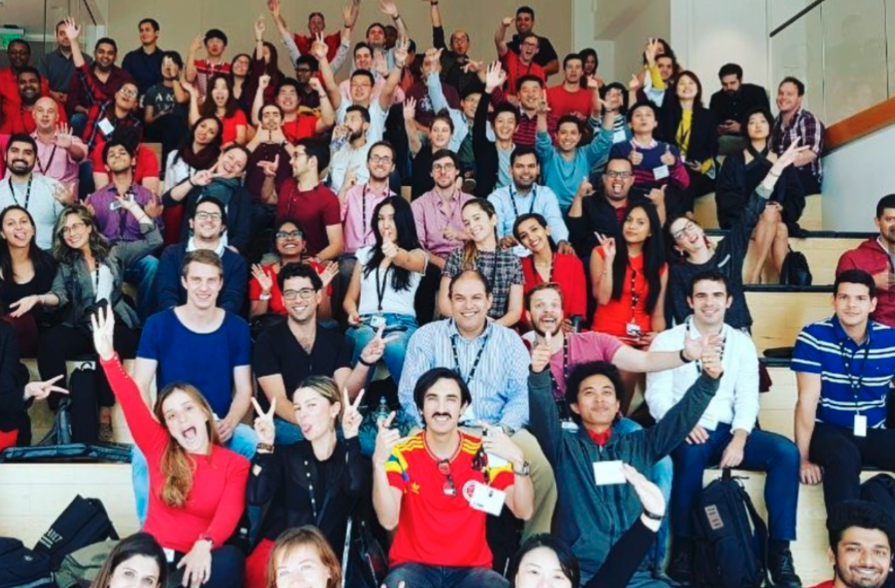

H: What was it like going back to studying after professional life?
S: I knew from the get-go that it would be a struggle, but I was committed to succeeding. I also knew that this was going to challenge my brain like nothing ever had before. When I graduated, I thought, ‘Oh my goodness, I would rather work the hardest job in the world than study again!’ It’s no joke! If you want to succeed, you’ve got to study and put the effort in.
I’d be in the library first thing in the morning, and then again after class until 9:00 in the evening. If you really want to take in all of that knowledge in just one year, you have to have the discipline to put the effort in. And it’s absolutely worthwhile.
H: Any particularly memorable classes or professors?
S: I was impressed by the quality of Hult’s professors. The faculty really understands and accommodates the mindset of students from all over the world.
I definitely want to highlight Thomas Sullivan, who is a Professor of Leadership. I’ve always believed myself to be a true leader at heart, and I aspire to lead people around me to great heights. His course showed me different types of leadership and what leadership actually means in practice. He was an amazing professor—we all loved him.
Another favorite was Viktoria Dalko, a Professor of Finance, who also teaches at Harvard. I’m still connected today on LinkedIn with my Hult professors.
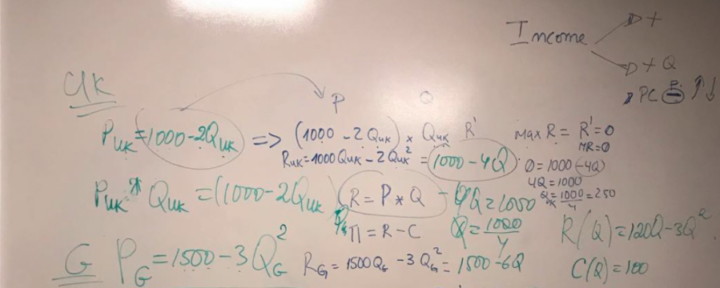

H: Did you have any support from the career services team during your time at Hult?
S: Yes! Jane Russell was my international career coach, but she was like a mother to all of us. She explained the importance of a one-page resume. She taught us how to tweak our resumes for different job applications, highlight our strengths, and write great cover letters.
When you speak to her, she listens. She helps you focus on what you actually want to achieve and what transferable skills you may have to help you realize your potential. I’m certain Jane is still adding a lot of value to Hult students’ careers today.
H: Speaking of transferable skills, how did you make the transition from oil and gas into banking?
S: When I came to Hult, I had always planned on going back to Kazakhstan. That was home and I still had my job there. I had my options open, but I never expected to meet my future husband and start a family in the US!
The natural career path in the US would have been to stay in oil and gas—in Texas or California. But I had a classmate, Nadege, who worked for Bank of America, and she said to me, ‘You’re a really good communicator, I think you’d do well as a relationship manager in banking.’ That surprised me, as I assumed I’d need banking experience. But she said, ‘You don’t necessarily have to have banking experience—you’d be great!’
So, the idea of working in banking was something that came out of a simple, friendly conversation with a classmate. I began thinking about it more seriously, and because I was pregnant at the time, my priorities began to change. I thought a career in banking could make sense—the industry is stable, the hours are family-friendly, and helping the community is something I strive for to fulfill my purpose in life. I studied Bank of America’s website, its products, mission, and purpose, and started applying for open positions in my region.
I think many of us can have a fixed mindset sometimes, and aren’t open to change or challenging opportunities. But we’re constantly evolving, and Hult teaches a growth mindset, which helps you seize these opportunities for change.
Hult teaches a growth mindset, which helps you seize these opportunities for change.
H: Do you feel your time at Hult helped you grow personally as well as professionally?
S: I’m a completely different person today. I emerged stronger and more resilient after tackling my MBA, pregnancy, and cultural adaptation to a new country. All of this transformed me. I am grateful to have so much more genuine confidence to navigate any challenges that come my way.


H: What’s next for you?
S: My ultimate goal is an early retirement. But in the meantime, I’d like to keep progressing in my current career, aiming for more senior leadership roles. In four years, I progressed from a Relationship Manager to Assistant Vice President, Financial Center Manager, which I’m proud of. My goal, say within 10 to 15 years, is to be a more significant asset to the organization at the regional level.
I consider myself more of a corporate person than an entrepreneur, but Hult’s MBA teaches you how to start your own business in practice. So, I have been exploring my options and came up with two small business ideas to create an additional cash flow: one revolves around offering expert chimney and masonry services, and the other is buying an investment property to rent.
H: What advice would you give to future Hult students, particularly those hoping for a career change after graduation?
S: First of all, always aim high. Go for the best, wherever you are. Apply to that Fortune 500 company. Build your resume to the job requirements. Aim for the role you want and are qualified for and don’t undersell yourself.
The same goes for salary negotiations—know the market rate and ask for the high end of the range. They can always negotiate down. We have a saying in Kazakhstan: ‘If you want the price of a sheep, always ask for the price of a camel.’ Aim high. This goes for everything in life.
On the flip side, my other advice is to get used to rejection. Get used to hearing ‘no.’ Because it will happen. We actually did this valuable exercise when I was at Hult where we had to collect 100 ‘Nos.’ For example, I went into a cafe and asked for a free coffee and they said, ‘No.’ It might sound silly, but it’s important to get comfortable with hearing ‘no.’
Rejection or failure isn’t the end. Failure becomes a success when you get back up and keep pursuing what you really want. So fail fast and get used to hearing the word ‘no.’ Remember, every ‘no’ brings you closer to a ‘yes.’ Keep going until you get that ‘yes,’ because you will!
Remember, every ‘no’ brings you closer to a ‘yes.’ Keep going until you get that ‘yes,’ because you will!
H: Congratulations on your amazing career journey so far, Sandugash, and all the best for the future!


